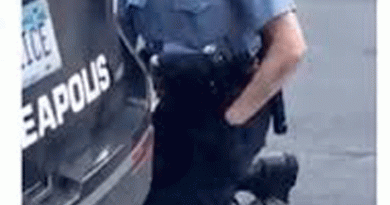Membertou, province and police disagree over legality of tax-free cigarettes
Membertou First Nation calls it non-quota tobacco, while the Nova Scotia government and Cape Breton regional police call it illegal.
Either way, the band council says it is losing a lot of money that could be used for sports and other programming on reserve and the province says it is losing out on tax revenue.
Last month, Membertou devoted a full page in its community newsletter to the issue, saying that non-quota tobacco sales cost the band $111,000 in March and could amount to $1.3 million a year if it continues.
Trevor Bernard, the band’s executive director, said the message is helping educate the public.
“All of the revenue that’s generated from the tobacco sales go right back into the community and so what we wanted the community to understand is that there is an impact being felt at the community level,” he said.
“I haven’t looked at the numbers and whether it had any impact on our sales. But I’ve heard on social media that there was a lot of positive feedback in the community and I’ve heard people say that they had no idea how much this revenue goes back into the community.”

Bernard said the band gets a federal quota of tobacco that it pays excise tax on, but is free of sales taxes.
The band then sells it to members and retailers, raising about $5 million a year, which it uses for a variety of programs and services, including youth and elder activities, medical transportation expenses that aren’t covered by Health Canada, the local powwow and summer jobs for students.
That’s why the band issued a public message, Bernard said.
“We really hope that this letter has some impact and that people in the community and the tobacco retailers are mindful of what those revenues are used for and that it’s having a significant impact,” he said.
Non-quota tobacco comes from other sources, such as Mohawk communities in Quebec and Ontario, and does not have excise tax paid on it, Bernard said.
The band refers to discount, untaxed tobacco sold on reserve as non-quota and does not take a position on whether it is being sold illegally, he said.
Band members may feel it’s their treaty right to trade with other First Nations, but the band has not yet discussed that in its tobacco sales policies, he said.

“It can be argued that it is. It’s not something we really explored,” Bernard said. “It’s a complicated issue. There’s different opinions on whether it is illegal or not.”
Provincial enforcement officers from Service Nova Scotia raided three Membertou businesses in December — two of which were unlicensed cannabis retailers — seizing tobacco and vaping products with the help of Cape Breton regional police.
Police say a lot of the discount, untaxed tobacco sold in Membertou comes through unlicensed cannabis retailers. Staff Sgt. Joe Farrell said police are keeping an eye on them.
Police connect tobacco sales to cannabis shops
“There definitely seems to be a connection and … I can’t speak on any ongoing files, but our plainclothes units are looking at the different dispensaries for that exact reason,” he said.
Cannabis became legal in Canada in 2018 and the provincial government says Nova Scotia Liquor Corporation outlets are the only stores that can legally sell it.
Cape Breton regional police cracked down on private cannabis shops in Membertou two years ago, when there were about 15 outlets on the reserve.
There are now about 30, Farrell said, but cannabis sales are now subject to provincial and federal negotiations that could bring changes in regulation.
Police ‘still committed’ to enforcement
Police are still investigating “potentially illegal dispensaries,” he said, working with the community on education and public safety, especially where dispensaries are located near the school or in residential neighbourhoods.
“We want to avoid the location and the accessibility of cannabis to minors,” Farrell said.
Police are also aware that more than one First Nation is in talks with the federal and provincial governments to establish local laws and regulations on cannabis retailing, including Membertou.
“We’re just waiting to find out the end result of that process,” Farrell said.
“We’re still committed to enforcing the unlicensed and illegal cannabis dispensaries. We’ve also seen court decisions on enforcement actions in other communities where charges have been stayed or withdrawn, so we know that change to the legislation is still possible, as a review of the federal Cannabis Act is ongoing and we look forward to understanding what impacts may come from that review.”
In an email, Service Nova Scotia said contraband tobacco is a “significant concern” that undermines efforts to discourage smoking and keep tobacco away from youth.
Last year, the department seized more than 2.1 million untaxed cigarettes, which it said is a “significant increase” from previous years, and cost the government about $564,000 in lost tax revenue.

